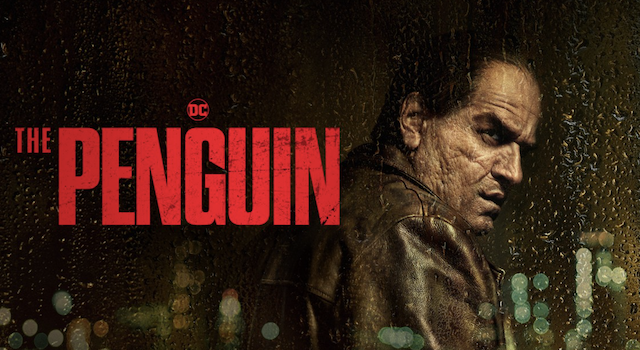
@Courtesy of Max
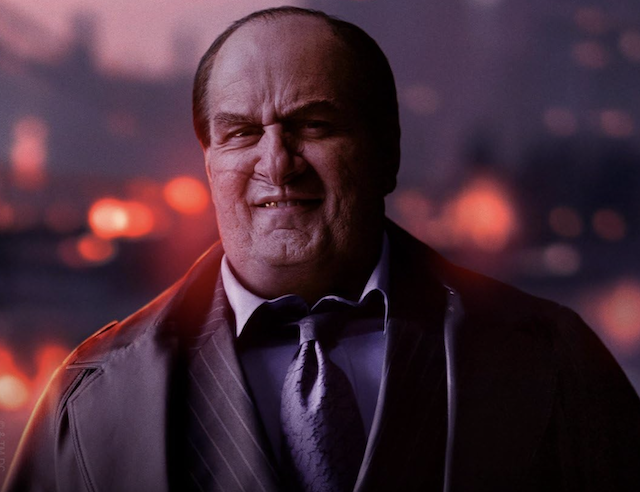
Press Conference with Actors Colin Farrell, Cristin Milioti and Creator Lauren LeFranc
Q: How did you develop the world of Gotham City without Batman appearing in it?
Lauren LeFranc: It’s about creating engaging, interesting characters. I had the benefit of already having Oz Cobb. Thanks to Mike Marino, who created this incredible prosthetic that makes it so seamless. The goal is that if you have interesting, complicated characters you’re not thinking about who else you wish could be in this world with them. I’ve benefited tremendously from the talent that’s on the show. I mean, other than Coling Cristin, Rhenzy, and Deirdre, they’re just so incredible in what they do. I’m so excited for people to see it.
Q: What did you draw on to help prepare for Penguin’s role? Did you study previous iterations of this character? And if so, what did you want to take with you or leave behind?
Colin Farrell: Somebody referenced Dustin Hoffman in Midnight Cowboy. I never, for a second, thought of Rats Rizzo. Someone else last week said to me that having seen the first two episodes, Oz reminded them of Robert De Niro in The Untouchables as Al Capone. Someone else said James Gandolfini. So it’s not an original performance apparently. What I mean is all of them are in there: I’ve seen Untouchables twice, I’ve seen Midnight Cowboy four times.
As an actor, anything you ever see, any piece of music you ever hear, it all meets you inside in a place that gets used, gets filtered through every single character you do in lesser or greater ways. The first time I saw what Michael Marino had created for the character, I was confused by it. Like Matt Reeves was, six months before we started shooting The Batman. But it also spoke to me so clearly, It spoke of history, of threat, of violence. There was also something sorrowful to the visage as well.
It was just so complex. And then Lauren and her team of writers created this whole world and these complex characters. It’s not just the Penguin Oz show. It’s all these human beings that are so complex and multifaceted. There was no particular reference point. Danny DeVito and I shared a few texts back and forth, but that was more about taking the piss out of each other: “Who’s the best penguin?” Sending pictures of action figures: “Yours is more accurate than mine. What’s up with that? Who did the paint job on my action figure?”
Q: What was it about the dark world of The Penguin that made you want to be a part of this series?
Cristin Milioti: This is the type of role that is an incredible dream to play because so much happens to her. I’m also a lifelong Batman fan. So I’ve been dreaming of this since I was very young. On a personal level, it was extremely surreal. As an actor, I would read each script and I would pinch myself because of how great it was to learn all of those things about Sofia. I couldn’t believe that I was going to do this. I felt this way about the whole show, but there were so many moments in episode four, especially putting that uniform on and getting so excited. That was one of my favorite things I’ve ever filmed.
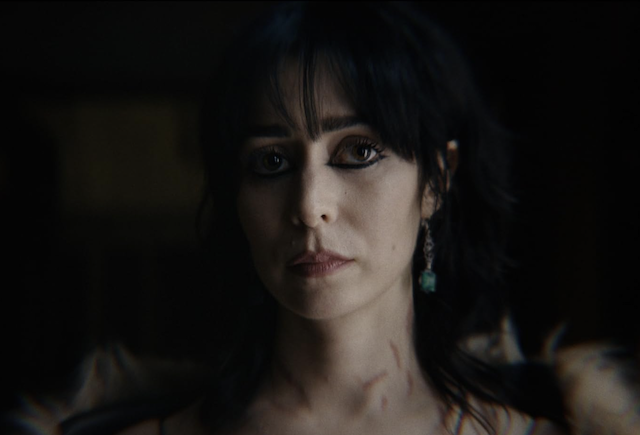
@Courtesy of Max
Q : How has playing this role been a different kind of experience for you?
Colin Farrell: I’m a little bit more objective with Oz Cobb: my presence in any movie or series immediately ruins it for me, but this time I had a better view because of the distance between myself and the character is so significant and so profound, because of the makeup and the visage, because of the silhouette, even my eyes look a little bit different. It’s like I’m looking out into the world in a different way.
When we put the makeup on first, it was instantaneous. I had conversations with Matt about the psychology of Oz and how paranoid he was, how insecure he was, and how he really wanted to be seen not as someone who was crippled, but wanted to have his power on this stage of Gotham City and its underworld. I had done loads of thinking about it, when the makeup went on and I looked in the mirror, looking back at your reflection it’s not what you have seen for 45 years. It’s really, really powerful.
So I just gave myself over to that. You would begin to feel differently, it would be confusing at first, but there’d be a stirring inside you. It’s a little bit strange, but it’s really powerful. And then based on the writing and that makeup, you just give yourself over to it.
Q: The mother/son relationship is paramount to the show. What intrigued you the most? What did you most want to explore in the relationship between Francis and Oz?
Lauren LeFranc: When I start thinking about characters, I ask myself a lot of questions. It’s just a lonely process, it’s just me typing out things to think about. One of them was: what does Oz want? Who is he? Where does he come from? What is he afraid of? I wanted to make sure that in this rise to power story, there was something greater behind it. I don’t think people seek power just to seek power. There must be a deeper void inside of them. To me, it made a lot of sense to build a mother figure for him and have emotion rooted in that.
I thought about the idea that Oz wants to make his mother proud, he needs her love and she’s withholding. Why she’s doing it, that’s something that we reveal deeper in the season. It felt like a personal connection to me. I wanted to create a really complicated, bristly, emotional, tough broad. Francis is loosely based on my grandmother, Ophelia, a Mexican immigrant who had a very hard life when she came to the United States.
She was tough, tricky and she would say wild things, but nothing like Francis. Francis has a dirtier mouth. I wanted a woman with energy that felt like Oz exists because of her, he is who he is firmly because of her. When Colin and Deirdre came together in the camera test and then their first scene together, it was incredible to watch that magic trick that they felt, that everybody felt on set. I wanted the relationship to be weird and twisted, to understand Oz in a deeper way, and Colin really embraced that.
Q : How did you find that daily process? Did it change for you as the weeks and months of the shoot went on? How did it evolve for you?
Colin Farrell: The first application, which was about six months before The Batman, was eight hours, but there wasn’t a crew waiting to shoot. We had someone that was doing the hair, someone that was doing the back of the hands, some was doing the wig, someone was doing the teeth, it was a whole process of 10 or 11 artists in a soundstage in Burbank. It was one of the most magical days I’ve had in 25 years of working as an actor.
After we did the film we got it down to five hours, then four, and then three hours every day. It was a magic time for me because the makeup crew was a bunch of misfits, the sweetest spirited people, and brilliant artists across the board. I felt like the circus was in town every morning that I stepped into the makeup trailer.
I’d get very shy and very vulnerable if someone saw me only half prepared, I wanted to keep the secret for myself. I loved the three-hour process. It never felt like three hours. It always felt like two hours and 57 minutes. It was an additive experience for me. It was never a drag. By two hours and 54, I’d start to get a little agitated and I’d walk out and then someone would be following me just doing a last little tip at the door.
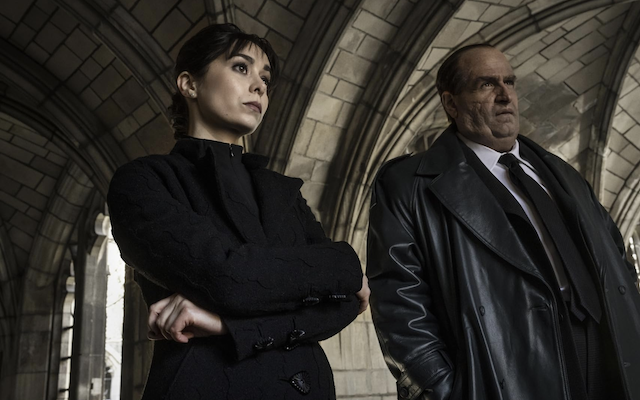
@Courtesy of Max
Q: How did you manage to get out of that headspace after months of shooting?
Colin Farrell: By the time we finished shooting the show I was done, it was such an honor to do this because I was a fan at Burgess Meredith when I was six or seven years of age, I was watching Burgess Meredith in the ‘60 Batman and then Danny DeVito in Tim Burton’s film, so just to be part of this canon was such an honor, but it was so well drawn, all the characters and their journeys were so well drawn, his descent into madness and psychopathy, that by the end of it, I was mentally exhausted.
Taking the makeup off at the end of every day was helpful. It was a 45-minute removal, and by the end of it the relief after so dark, because he’s such a remorselessly cruel character by the end – I say that with affection and not judgment – I was glad to be done. I started watching Pixar films. I’d go back to my hotel room and put on Finding Nemo. In my life, I had to watch light stuff. I wouldn’t watch any dark material, honest to God. Finding Nemo’s the answer. I could have gotten that much quicker.
Q : Are there any past performances in movies or TV that particularly inspired you for Sofia? What are you most excited for people to see when they will meet her?
Cristin Milioti: I tried to stay away from things. Deirdre really helped me, she talked to me about movies you watch for courage. I started this whole list with a couple of my friends who are also actors, and we sent each other performances for courage. For example, she suggested Gena Rowlands in Gloria. I had never seen that performance of hers, it’s exquisite. I watched Women on the Verge of a Mental Breakdown.
That’s so different in tone but it was very helpful. I watched a lot of things to give me courage because I was extremely nervous and racked with self-hatred and doubt. What I’m most excited for people to see, I hope they like it. It’s so nerve-wracking when you really care about something, I really care about this show and I really care about this character in a vulnerable way. I really love her, it’s been like an enormous honor to play someone like this. I’m very protective of her, I want people to love her as much as I do.
Q: How did you incorporate fandom into your creative process here?
Lauren LeFranc: My goal is to make sure we’re honoring the stories that have come before us, and try our best to make something that feels wholly original within it. The thing that I was most excited about, honestly, was to create new canon and to be able to create new characters or to evolve characters in a different way, and put my own stamp on it. I grew up reading comic books, I loved them and always wanted to tell stories like that. Just being given the opportunity to do that on a scale like this, I wanted to make sure as a fan, my goal was honestly just to create interesting stories to have characters that feel relatable and intriguing and repulsive at times. The world that Matt established in the film is really exciting for me.
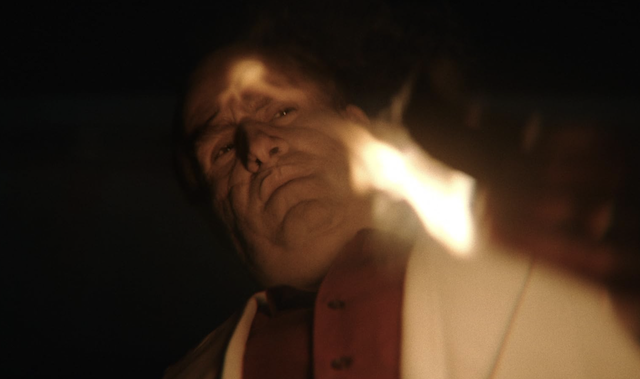
@Courtesy of Max
Q: Can you pick apart the layers of what created this man? How much would you attribute it to his family upbringing? Did you have something in your head that was an incident in his life that triggered him to a certain path?
Colin Farrell: There’s one incident in his life that’s revealed throughout the show that was probably more consequential than anything else in regards to directing him towards the man he becomes. But there was something he was born with, a physical limitation that was really emotionally and psychologically crippling, he felt subjugated by his own limitations and what he was told his limitation was. He was bullied, and treated cruelly by society. More often than not, when somebody commits an act of cruelty, you will find out that they had been treated cruelly at some stage in their timeline.
Oz had been treated with great cruelty, not by his mother. She was the greatest influence in his life but there was no amount of love that he could receive even from her that would have reduced the pain that he didn’t know how to manage within himself. That’s something that comes out later in this tale over eight hours, it comes out in all sorts of grotesquely consequential ways. That was the beautiful thing about getting to do this show: is there forgiveness and is there redemption? And is there a point where you’ve gone too far? I think by the end of the show, Oz has gone too far and there’s no coming back. He has dropped into a certain psychological place in his life, and that’s where he belongs now.
Q : Why did you decide to rename Oz from Cobblepot to Cobb?
Lauren LeFranc: Cobblepot is not a word that exists in our universe. It makes him very unique. For our show, the fact that we’re very grounded should feel more real. It made a lot of sense to give him a name that does exist in our world, and so we changed it to Oz. This is our Penguin, he’s the only one who goes by Oz Cobb.
As a huge fan, it was really easy because I think the Gotham City that Matt created is just so interesting, engaging, gritty, real, and dark. The fact that we’re following Oz makes our show a little bit wilder, a little bit more energetic. There’s some darker humor in it as well. We didn’t really have handcuffs, everyone was really gracious about it, we want this to feel very grounded. We want it to be a crime drama. We want to have all these characters fully realized. That’s what every single person working on the show wanted.
Q: Did you increase Oz’ slight wobble or adjust that consciously in any way as things happen?
Colin Farrell: There were certain scenes where if I knew Oz was on his feet the whole day, in the timeline of the show, that might be a little bit more in certain days if you got a good nice rest. Or if he was around people whose judgment he feared he would try and do it less. There were moments when I jumped off the back of my truck and I’d land on my foot, I wanted just to get a grimace, I just wanted to always remember that there was something that it wasn’t just the fun of being like a metronome or a pendulum. The real reason why he lived the way he did was because there was an awful amount of pressure and soreness that came from that foot.
w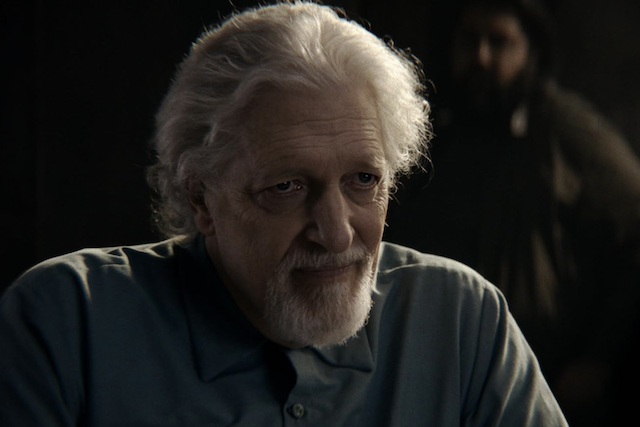 @Courtesy of Max
@Courtesy of Max
Q: Could you talk about how empowering it was for you to create women who are allowed to be anti-heroes?
Lauren LeFranc: I have vivid memories of being in my mom’s Volvo in the backseat and imagining myself as a different character. I always would imagine myself as a male character. I think it was because I found them more interesting, they were given more interesting stories as backgrounds. That was something that I wanted to try to evolve in terms of being in this privileged position to be able to tell unique stories like this to reach a larger audience.
I wanted to reach that younger version of myself and other women. I think we should have more complicated people on screen, more flawed people. My goal was to make sure that we’re just affording every single character on our show, the same amount of backstory, and the same amount of complicated trauma in certain moments. That was really exciting to me, it’s something as a storyteller I want to do for every single character on our show. I did want to make sure that this world was peppered with very complicated, interesting, flawed women.
Cristin Milioti: I watched Batman Forever a lot as a kid. I know that’s not one of the more beloved ones, but I really loved it. And when I would play in my backyard, I would pretend to be the Riddler, because Nicole Kidman in the movie is a psychologist who walks around in a laundry and says things like: “Wow, nice nipples Batman!” I would also always pretend to be the man. In Batman Returns Michelle Pfeiffer really does get to do that as well, but even the first one I was always pretending to be the Joker. It just was those were the ones that are the most exciting characters.
If you like the articles, share your thoughts below!
Check out more of Adriano’s articles.
Here’s the trailer for The Penguin:

